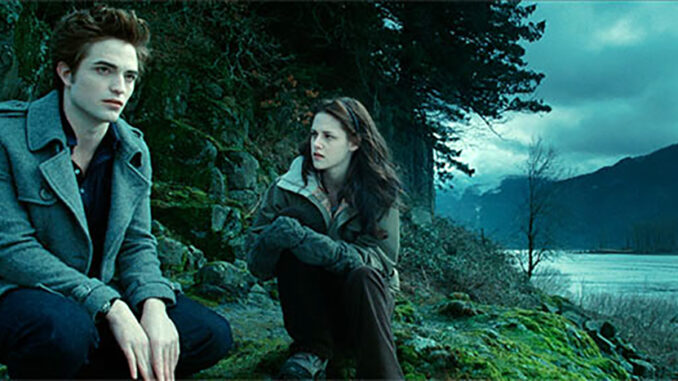
Twilight: Midnight Sun Movie Rumors Resurface – Will Edward’s POV Hit the Screen?
The cinematic universe of Twilight casts a long, enduring shadow, a shimmering, slightly unsettling glow that continues to captivate millions. Years after the final film credits rolled, the fandom remains remarkably vibrant, fuelled by nostalgia, new generations discovering the saga, and crucially, the tantalizing prospect of what could be. Among the most persistent whispers in the dark, hushed corners of the internet is the recurring rumor of a Midnight Sun movie—an adaptation told from the brooding, tormented, and utterly captivating perspective of Edward Cullen. The question isn't just if it will happen, but what such an adaptation would truly mean for the enduring legacy of the Forks phenomenon.
The initial Twilight saga, adapted from Stephenie Meyer's wildly popular books, offered us the world through Bella Swan's eyes: her awkwardness, her rapid descent into an all-consuming love, her perception of Edward as an unattainable, dazzling enigma. It was a story of discovery, infatuation, and a human girl navigating a supernatural world. Then came Midnight Sun, the novel published over a decade later, which cracked open the very mind of the "monster." This was no longer just a romance; it was a psychological thriller, a battleground of self-loathing, predatory instinct, and an almost unbearable tenderness. Edward's perspective revealed the terrifying intensity of his struggle against his nature, his obsessive need to protect Bella even from himself, and the sheer sensory overload of his existence. It illustrated in vivid detail the internal storms he weathered while merely looking at Bella, the siren call of her blood, and the constant mental wrestling match of a vampire in love.
Translating this internal landscape to the screen presents both immense narrative potential and formidable challenges. Cinematically, Edward's POV offers a breathtaking opportunity for a stylistic overhaul. Imagine the world through his enhanced senses: the individual dust motes dancing in a sunbeam, the distinct scent of every living thing, the cacophony of human thoughts assaulting his mind, a perpetual stream of data he must filter. Key scenes, once seen as innocent or merely romantic from Bella's naive viewpoint, would take on a visceral, almost terrifying new dimension. The iconic cafeteria scene, where Edward first struggles with Bella's scent, would become a symphony of agonizing self-control, depicted perhaps with distorted visuals, a pounding heartbeat (his own, amplified), and a chorus of whispers from the minds around him. The meadow scene, Bella's idyllic fantasy, could be transformed into a tense ballet of instinct versus restraint, with Edward constantly aware of every rustle in the leaves, every shadow, every potential threat to the fragile human beside him, even as his own urges clawed at his composure.
The true power of a Midnight Sun film lies in its ability to humanize (or rather, vampirize) Edward beyond the brooding archetype. We would witness his desperate attempts to understand human emotions he can only read, his genuine confusion over Bella's reckless bravery, and the profound depth of his loneliness before she arrived. It could be a darker, more introspective film, leaning into the gothic horror elements that were often softened in the original adaptations. The romance would still be there, but it would be tempered by a raw, desperate edge, the constant threat of Edward losing control. This shift in perspective wouldn't just re-tell the story; it would re-contextualize it, offering a richer, more complex tapestry of the events we thought we knew.
However, the path to a Midnight Sun movie is fraught with significant obstacles, chief among them the logistical nightmare of casting. Robert Pattinson, the definitive Edward Cullen for a generation, has not only aged out of the role of a perpetually seventeen-year-old vampire but has also cultivated a critically acclaimed career far removed from the teen heartthrob image. Recasting would inevitably alienate a segment of the fiercely loyal fanbase, while de-aging technology, though advancing, remains imperfect and costly. Moreover, there's the question of narrative redundancy. Would audiences truly flock to see essentially the same story, albeit from a different angle, without new plot developments? The film would need to be remarkably artful in its execution, finding ways to make the familiar feel profoundly new, relying heavily on the internal monologue and visual metaphors to convey Edward's unique sensory experience.
Yet, the persistent rumors themselves are illustrative of a deeper truth: the enduring power of a well-crafted universe and compelling characters. The Twilight saga, despite its critics, tapped into universal themes of first love, identity, belonging, and the allure of the forbidden. The Midnight Sun rumors resurfacing are not just about a movie; they are about a collective yearning to delve deeper into a world that left a lasting imprint. It's the fans' desire to understand the unspoken, to walk in the shoes of the other, and to relive a beloved story with fresh eyes.
Whether the silver screen ever illuminates Edward's tormented internal world or not, the continued discussion of a Midnight Sun film serves as a testament to the saga's indelible mark on popular culture. It's a whisper in the wind, a flickering hope in the twilight, reminding us that even in worlds of eternal life, there are always new stories waiting to be told, new perspectives to be explored, and new ways to fall in love with the familiar all over again. And for devoted fans, that hope, however ephemeral, is enough to keep the eternal flame of the Cullen saga burning bright.
